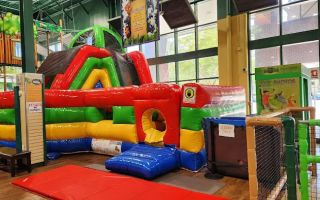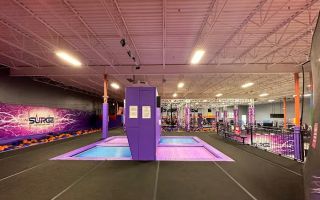Can You Sue Amusement Parks? Legal Rights and Considerations for Theme Park Injuries
- Understanding Your Rights at Amusement Parks
- Common Causes of Amusement Park Accidents
- What to Do if You Are Injured at an Amusement Park
- How to File a Lawsuit Against an Amusement Park
- Real-Life Case Study: Injury at a Theme Park
- Expert Legal Advice on Amusement Park Lawsuits
1. Understanding Your Rights at Amusement Parks
As much fun as amusement parks are, they also come with certain risks. Roller coasters, water rides, and other thrilling attractions can be dangerous if safety measures are not properly followed. But what happens if you're injured during your visit? Can you sue an amusement park for an accident or injury that occurs on their premises?
The short answer is yes, you can sue an amusement park if you are injured due to their negligence. However, it’s essential to understand your rights and the conditions under which a lawsuit might be successful. Amusement parks, like any business, have a legal duty to ensure that their rides, facilities, and overall environment are safe for visitors. If they fail to meet this duty of care, they could be held liable for accidents that happen as a result.
2. Common Causes of Amusement Park Accidents
Amusement parks are designed to provide a fun and exciting experience, but accidents can and do happen. Here are some common causes of amusement park accidents that may lead to legal action:
- Ride Malfunctions: A malfunctioning ride, such as a broken seat belt, faulty safety harnesses, or failure of ride machinery, can result in serious injuries. If the park failed to maintain the ride properly, they could be held liable for any resulting accidents.
- Operator Error: Ride operators are trained to follow specific safety protocols. However, if an operator fails to adhere to these protocols or makes mistakes, it can lead to dangerous situations for guests.
- Poor Park Maintenance: Amusement parks must keep their facilities in good repair. Slippery walkways, broken fences, or malfunctioning ride safety mechanisms can all be grounds for an accident lawsuit.
- Negligent Security: In rare cases, injuries at amusement parks may occur due to inadequate security measures. This could include insufficient staff presence to prevent fights, crowd control issues, or even theft.
3. What to Do if You Are Injured at an Amusement Park
If you are injured at an amusement park, it’s important to take specific steps to protect your health and legal rights. Here’s what you should do:
- Seek Medical Attention: Your health and safety should be your first priority. Even if you think your injury is minor, it’s crucial to get checked by a medical professional as some injuries may not be immediately apparent.
- Document the Incident: Take pictures of the injury, the ride, and the surrounding area. Make sure to write down what happened, including any details you can remember about the incident and any witnesses who saw what occurred.
- Report the Incident: Inform park employees and file an incident report. Be sure to get a copy of the report for your records, as this may be important evidence later if you decide to pursue a lawsuit.
- Collect Witness Information: If there were any witnesses to the accident, make sure to get their contact information. Witness testimony can be crucial in proving negligence.
4. How to File a Lawsuit Against an Amusement Park
Filing a lawsuit against an amusement park can be a complex process. To successfully pursue legal action, you’ll need to prove that the park was negligent in some way, which led directly to your injury. Here’s a general outline of the process:
- Consult a Lawyer: It’s essential to consult with a personal injury attorney who has experience with amusement park lawsuits. They can help you understand your legal rights, evaluate the strength of your case, and guide you through the process.
- Gather Evidence: Collect all necessary evidence, including medical records, witness statements, incident reports, and photographs. Your attorney will help organize and present this evidence in a compelling manner.
- File a Claim: Once you’ve decided to move forward, your attorney will file a claim on your behalf. This may involve negotiating with the amusement park's insurance company to reach a settlement, or it may require filing a formal lawsuit if a settlement cannot be reached.
5. Real-Life Case Study: Injury at a Theme Park
One of the most well-known cases involving a lawsuit against an amusement park happened a few years ago when a visitor was seriously injured on a malfunctioning roller coaster. The incident occurred due to a mechanical failure that caused the ride to come to an abrupt halt, injuring several passengers. The victims of the accident were able to successfully sue the park for negligence after it was revealed that the ride had not undergone proper safety inspections.
This case highlights the importance of maintaining rides and adhering to safety protocols. The victims were awarded compensation for medical expenses, pain and suffering, and lost wages. It’s a clear example of how, in certain situations, amusement parks can be held accountable for their negligence, and victims can receive compensation for their injuries.
6. Expert Legal Advice on Amusement Park Lawsuits
If you find yourself in a situation where you’re considering legal action against an amusement park, it's important to consult with an experienced personal injury lawyer. They can assess your case, help gather the necessary evidence, and guide you through the legal process. With the right legal representation, you can ensure that your rights are protected and that you have the best chance of receiving compensation for your injuries.
Whether you're planning a family trip or already dealing with an unfortunate injury, it’s crucial to understand your rights. Knowing what steps to take and how to protect yourself can make all the difference when navigating the aftermath of an accident at an amusement park.





















![Chambers [VR]](https://img.hickorydickorydock.net/d38/2504/1173654434_150x150.webp)














